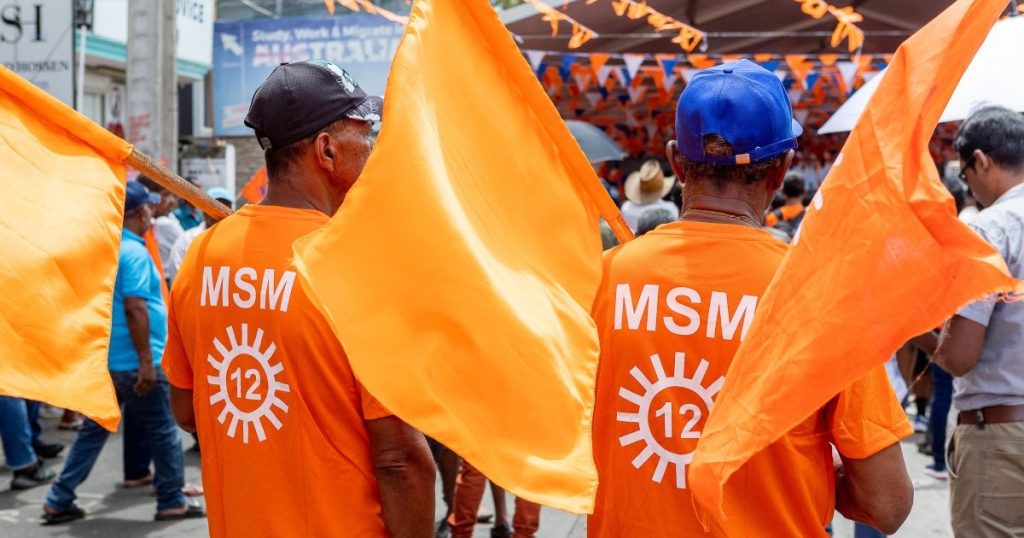The parliamentary election in Mauritius is taking place against the backdrop of a wire-tapping scandal and a cost of living crisis, with about one million registered voters expected to choose 62 members to the National Assembly. The polls opened at 7am and will close at 6pm on Sunday, with results expected on Monday. The country, which gained independence from the United Kingdom in 1968, is facing one of its most significant elections yet, with the issue of the cost of living crisis at the forefront of voters’ minds.
The incumbent Prime Minister Pravind Kumar Jugnauth’s Militant Socialist Movement party and the opposition parties have all pledged to address the cost of living crisis, which has become a key election issue in the Indian Ocean archipelago. The party or coalition that secures more than half of the seats in parliament will also win the prime minister’s post. Jugnauth, who is seeking re-election, recently oversaw a historic agreement in which the UK ceded sovereignty of the Chagos Islands to Mauritius following a longstanding dispute.
However, Jugnauth’s party suffered a setback with the leak of secretly recorded phone calls involving politicians, diplomats, and journalists. In response to the scandal, authorities initially announced a social media ban until after the election, but quickly reversed course due to opposition and media backlash. Security concerns have also arisen during campaigning, leading to increased police presence at polling stations. The African Union has sent a 30-member observer mission to ensure a fair and transparent election process in one of Africa’s most stable democracies.
Mauritius, a country known for its economic prosperity and stability, has been facing a cost of living crisis that has not translated into real benefits for many of its residents. Despite a forecasted economic growth rate of 6.5 percent this year, down from 7 percent the previous year, many voters feel the pinch of rising costs. Jugnauth’s Alliance Lepep coalition has promised to address these concerns by raising minimum wages, increasing pensions, and reducing value-added tax on essential goods using funds from the recent UK agreement over the Chagos Islands.
The opposition, led by the Alliance of Change coalition under Navin Ramgoolam, has also promised to tackle the cost of living crisis by increasing pensions, introducing free transport and internet services, and lowering fuel prices. Both sides are campaigning on promises of economic prosperity and improvements to the standard of living for the population. As the election proceeds, it remains to be seen which party or coalition will emerge victorious and how they will address the pressing issues facing Mauritius in the coming years.


